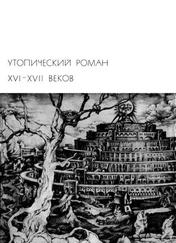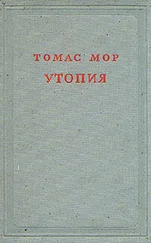1 ...8 9 10 12 13 14 ...24 "After the steward of the hospitals has taken for the sick whatsoever the physician prescribes, then the best things that are left in the market are distributed equally among the halls in proportion to their numbers; only, in the first place, they serve the Prince, the Chief Priest, the Tranibors, the Ambassadors, and strangers, if there are any, which, indeed, falls out but seldom, and for whom there are houses, well furnished, particularly appointed for their reception when they come among them. At the hours of dinner and supper the whole Syphogranty being called together by sound of trumpet, they meet and eat together, except only such as are in the hospitals or lie sick at home. Yet, after the halls are served, no man is hindered to carry provisions home from the market–place, for they know that none does that but for some good reason; for though any that will may eat at home, yet none does it willingly, since it is both ridiculous and foolish for any to give themselves the trouble to make ready an ill dinner at home when there is a much more plentiful one made ready for him so near hand. All the uneasy and sordid services about these halls are performed by their slaves; but the dressing and cooking their meat, and the ordering their tables, belong only to the women, all those of every family taking it by turns. They sit at three or more tables, according to their number; the men sit towards the wall, and the women sit on the other side, that if any of them should be taken suddenly ill, which is no uncommon case amongst women with child, she may, without disturbing the rest, rise and go to the nurses' room (who are there with the sucking children), where there is always clean water at hand and cradles, in which they may lay the young children if there is occasion for it, and a fire, that they may shift and dress them before it. Every child is nursed by its own mother if death or sickness does not intervene; and in that case the Syphogrants' wives find out a nurse quickly, which is no hard matter, for any one that can do it offers herself cheerfully; for as they are much inclined to that piece of mercy, so the child whom they nurse considers the nurse as its mother. All the children under five years old sit among the nurses; the rest of the younger sort of both sexes, till they are fit for marriage, either serve those that sit at table, or, if they are not strong enough for that, stand by them in great silence and eat what is given them; nor have they any other formality of dining. In the middle of the first table, which stands across the upper end of the hall, sit the Syphogrant and his wife, for that is the chief and most conspicuous place; next to him sit two of the most ancient, for there go always four to a mess. If there is a temple within the Syphogranty, the Priest and his wife sit with the Syphogrant above all the rest; next them there is a mixture of old and young, who are so placed that as the young are set near others, so they are mixed with the more ancient; which, they say, was appointed on this account: that the gravity of the old people, and the reverence that is due to them, might restrain the younger from all indecent words and gestures. Dishes are not served up to the whole table at first, but the best are first set before the old, whose seats are distinguished from the young, and, after them, all the rest are served alike. The old men distribute to the younger any curious meats that happen to be set before them, if there is not such an abundance of them that the whole company may be served alike.
"Thus old men are honoured with a particular respect, yet all the rest fare as well as they. Both dinner and supper are begun with some lecture of morality that is read to them; but it is so short that it is not tedious nor uneasy to them to hear it. From hence the old men take occasion to entertain those about them with some useful and pleasant enlargements; but they do not engross the whole discourse so to themselves during their meals that the younger may not put in for a share; on the contrary, they engage them to talk, that so they may, in that free way of conversation, find out the force of every one's spirit and observe his temper. They despatch their dinners quickly, but sit long at supper, because they go to work after the one, and are to sleep after the other, during which they think the stomach carries on the concoction more vigorously. They never sup without music, and there is always fruit served up after meat; while they are at table some burn perfumes and sprinkle about fragrant ointments and sweet waters—in short, they want nothing that may cheer up their spirits; they give themselves a large allowance that way, and indulge themselves in all such pleasures as are attended with no inconvenience. Thus do those that are in the towns live together; but in the country, where they live at a great distance, every one eats at home, and no family wants any necessary sort of provision, for it is from them that provisions are sent unto those that live in the towns.
Of the Travelling of the Utopians
If any man has a mind to visit his friends that live in some other town, or desires to travel and see the rest of the country, he obtains leave very easily from the Syphogrant and Tranibors, when there is no particular occasion for him at home. Such as travel carry with them a passport from the Prince, which both certifies the licence that is granted for travelling, and limits the time of their return. They are furnished with a waggon and a slave, who drives the oxen and looks after them; but, unless there are women in the company, the waggon is sent back at the end of the journey as a needless encumbrance. While they are on the road they carry no provisions with them, yet they want for nothing, but are everywhere treated as if they were at home. If they stay in any place longer than a night, every one follows his proper occupation, and is very well used by those of his own trade; but if any man goes out of the city to which he belongs without leave, and is found rambling without a passport, he is severely treated, he is punished as a fugitive, and sent home disgracefully; and, if he falls again into the like fault, is condemned to slavery. If any man has a mind to travel only over the precinct of his own city, he may freely do it, with his father's permission and his wife's consent; but when he comes into any of the country houses, if he expects to be entertained by them, he must labour with them and conform to their rules; and if he does this, he may freely go over the whole precinct, being then as useful to the city to which he belongs as if he were still within it. Thus you see that there are no idle persons among them, nor pretences of excusing any from labour. There are no taverns, no ale–houses, nor stews among them, nor any other occasions of corrupting each other, of getting into corners, or forming themselves into parties; all men live in full view, so that all are obliged both to perform their ordinary task and to employ themselves well in their spare hours; and it is certain that a people thus ordered must live in great abundance of all things, and these being equally distributed among them, no man can want or be obliged to beg.
"In their great council at Amaurot, to which there are three sent from every town once a year, they examine what towns abound in provisions and what are under any scarcity, that so the one may be furnished from the other; and this is done freely, without any sort of exchange; for, according to their plenty or scarcity, they supply or are supplied from one another, so that indeed the whole island is, as it were, one family. When they have thus taken care of their whole country, and laid up stores for two years (which they do to prevent the ill consequences of an unfavourable season), they order an exportation of the overplus, both of corn, honey, wool, flax, wood, wax, tallow, leather, and cattle, which they send out, commonly in great quantities, to other nations. They order a seventh part of all these goods to be freely given to the poor of the countries to which they send them, and sell the rest at moderate rates; and by this exchange they not only bring back those few things that they need at home (for, indeed, they scarce need anything but iron), but likewise a great deal of gold and silver; and by their driving this trade so long, it is not to be imagined how vast a treasure they have got among them, so that now they do not much care whether they sell off their merchandise for money in hand or upon trust. A great part of their treasure is now in bonds; but in all their contracts no private man stands bound, but the writing runs in the name of the town; and the towns that owe them money raise it from those private hands that owe it to them, lay it up in their public chamber, or enjoy the profit of it till the Utopians call for it; and they choose rather to let the greatest part of it lie in their hands, who make advantage by it, than to call for it themselves; but if they see that any of their other neighbours stand more in need of it, then they call it in and lend it to them. Whenever they are engaged in war, which is the only occasion in which their treasure can be usefully employed, they make use of it themselves; in great extremities or sudden accidents they employ it in hiring foreign troops, whom they more willingly expose to danger than their own people; they give them great pay, knowing well that this will work even on their enemies; that it will engage them either to betray their own side, or, at least, to desert it; and that it is the best means of raising mutual jealousies among them. For this end they have an incredible treasure; but they do not keep it as a treasure, but in such a manner as I am almost afraid to tell, lest you think it so extravagant as to be hardly credible. This I have the more reason to apprehend because, if I had not seen it myself, I could not have been easily persuaded to have believed it upon any man's report.
Читать дальше
Конец ознакомительного отрывка
Купить книгу








